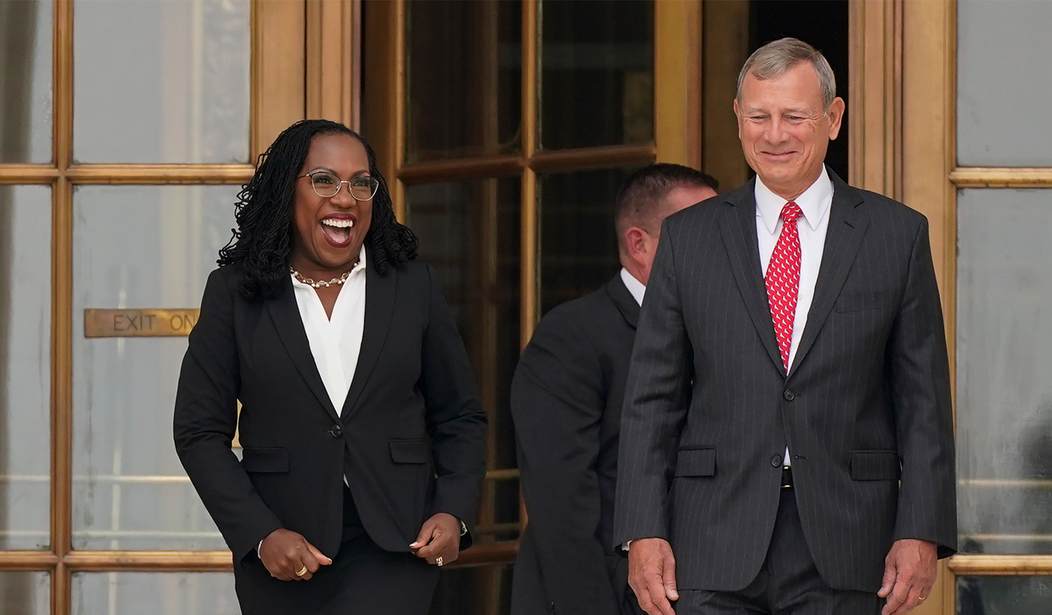Color me a bit surprised at this news, considering the context of our times. Twenty years ago, this result would have been utterly predictable, but critical race theory and ethnic determinism had not yet ingrained themselves into the educational, legal, and corporate establishments at that time.
Maybe those radical concepts haven’t actually ingrained themselves as much as people think. At least that’s what the result of today’s Marquette Law poll on racial preferences suggests:
The Marquette survey finds that the public is skeptical of the use of race in college admissions, with 41% in favor of a decision that would find a legal ban on the use of race and 16% opposed. The case is not yet on the top of mind for most respondents, however, with 42% saying they haven’t heard anything about such a case or haven’t heard not enough to have an opinion.
Marquette polling since September 2021 has shown a consistent opposition among the public to the use of race in admissions, as shown in Table 2. Those saying they haven’t heard or haven’t heard enough increased over the summer, from 33% in March to 50% in September. Table 2 (a) shows views including those who have not heard enough about the issue, and Table 2 (b) shows the percentages for only those with an opinion. …
While large percentages say they haven’t heard enough about the college admissions case, more respondents within each race and ethnic group favor banning use of race as a factor in admissions than think consideration of race should continue to be permitted. Table 3 (a) shows views including those who have not heard enough about the issue, and Table 3 (b) shows the percentages for only those with an opinion.
The acute test of this will be the Supreme Court’s eventual decision on racial preferences in two test cases combined for review. In both Students for Fair Admissions v. Harvard and Students for Fair Admissions v. UNC, the issue is whether a compelling state interest in “diversity” overrides the clear textual and historical meaning of the 14th Amendment. The Harvard case is particularly interesting, as the case involves handicapping against Asian-American students, among other issues. This, however, is a long-simmering clash that began with Bakke and will go on until the court finally pulls the trigger on preferential treatment based on determinism.
Previous Supreme Court decisions have allowed it, but only as a relatively temporary measure to give an opportunity to remediate historical wrongs for certain groups. Chief Justice John Roberts warned several years ago that the time to close out this constitutional exception would soon be at hand. The grant of cert to these appeals indicated a willingness to determine whether that day had arrived. Reports from oral arguments at the end of last month indicate that the court is leaning in that direction.
What’s remarkable about this poll, though, is that the American public still leans in that direction — and very broadly, too, across most demos. Among all respondents — including those with no opinion — every political ethnic demo except black respondents favor ending racial preferences in college admissions by a wide margin. When narrowed to those with an opinion, majorities in every demo favor ending them:
- White: 73/27
- Black: 56/44
- Hispanic: 74/26
- Other/multiple: 84/16
- Democrats: 53/47
- Lean Democrat: 69/31
Even more strikingly, a majority of respondents who believe racism is a “very big problem” also favor an end to racial preferences, 54/46. If that seems counterintuitive, it shouldn’t. Racial preferences are based on the same kind of determinism that once fueled racial separation in other contexts. It’s quite possible to grasp that the American public largely does not see a contradiction in being concerned about racism while advocating that we stop treating race as a primary determination of value and outcome.
That, however, is most definitely not what CRT and wokery teaches. Those philosophies are entirely determinist, and what’s more, permanently determinist. There is no exit from their version of “anti-racism” in which all things must be filtered and viewed through racial prisms. It’s a dead-end ideology, where all demos must compete for priority treatment rather than having individuals compete and succeed on their own merits.
This poll offers hope that the radical-progressive attempts to foist these determinist ideologies have not succeeded in the long run … or at least not so far. We’ll likely have to wait until June to see if the Supreme Court has caught up with the American public on preferences, but at least we can hope that they have finally caught up with the Constitution.








Join the conversation as a VIP Member